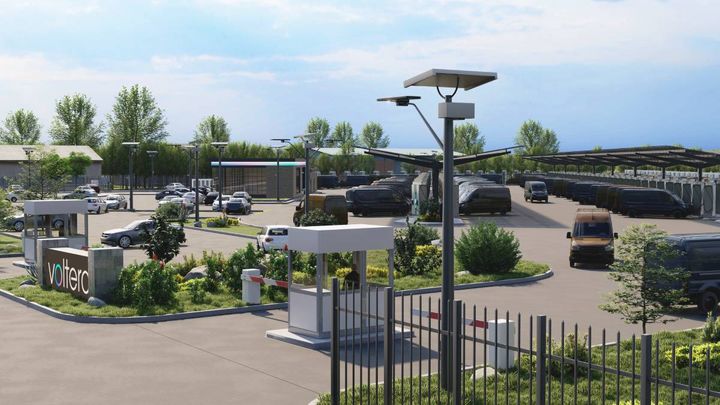+++ Plant Dingolfing Technology Assembly is the winner of the prestigious industry competition in the “OEM” category +++ Jury praises smart digitalization with speedy implementation +++ Consistent implementation of the BMW iFACTORY mission +++ Dingolfing. High praise for the BMW Group Plant Dingolfing: The 2022 “Automotive Lean Production Award” in the “OEM” (Original Equipment… Continue reading @BMW: BMW Group Plant Dingolfing’s Assembly wins “Automotive Lean Production Award”002189
Tag: Mobility
North American Light Vehicle Market Report 2022: Electric Vehicle Market Penetration, EV Trends, and Key Upcoming EV Models till 2025
DUBLIN, Aug. 10, 2022 /PRNewswire/ — The “North American Light Vehicle Growth Opportunities” report has been added to ResearchAndMarkets.com’s offering. In 2021, North American light vehicle sales reached 16.8 million and is forecast to surpass 19 million by 2025 growing at a CAGR of 3.3%. The study aims to provide an overview of the automotive industry… Continue reading North American Light Vehicle Market Report 2022: Electric Vehicle Market Penetration, EV Trends, and Key Upcoming EV Models till 2025
Innoviz Technologies Provides Commercial Updates and Reports Second Quarter 2022 Financial Results
Selection by Volkswagen’s CARIAD as its direct LiDAR supplier for automated vehicles cements Innoviz’s Tier 1 status TEL AVIV, Israel, Aug. 10, 2022 /PRNewswire/ — Innoviz Technologies Ltd. (Nasdaq: INVZ) (the “Company” or “Innoviz”), a Tier-1 supplier of high-performance, solid-state LiDAR sensors and perception software, today provided updates on commercial traction, technology leadership, and corporate development and… Continue reading Innoviz Technologies Provides Commercial Updates and Reports Second Quarter 2022 Financial Results
JSW Group join forces with ElectricPe for EV charging
JSW Group has chosen EV charging platform ElectricPe as its charging partner. ElectricPe has enabled the charging infrastructure at the JSW Mumbai office headquarters. The company will soon expand its services to JSW offices in Vasind, Dolvi, Vijayanagar, Sholtu, and Jharsuguda, respectively. This partnership has come into effect following the recent green policy introduced by… Continue reading JSW Group join forces with ElectricPe for EV charging
Over 550,000 people set to attend the International Saudi Falcons and Hunting Exhibition in Malham, Riyadh
RIYADH, Saudi Arabia, Aug. 10, 2022 /PRNewswire/ — More than half a million people will descend on the 2022 International Saudi Falcons and Hunting Exhibition, the world’s largest falconry event, taking place from 25th August – 3rd September. Continue Reading The International Saudi Falcons and Hunting Exhibition in Malham, Riyadh The 10-day extravaganza brings together… Continue reading Over 550,000 people set to attend the International Saudi Falcons and Hunting Exhibition in Malham, Riyadh
New Company Ready to Build and Operate EV Charging Stations
Voltera plans to invest several billion dollars on deployments that are developed in specific locations where customers need to be, as shows in this rendering of a proposed delivery fleet charging depot. Image: Voltera Voltera, a provider of critical infrastructure necessary to electrify transportation, announced its launch on Aug. 9 as an EV industry service… Continue reading New Company Ready to Build and Operate EV Charging Stations
Geely-backed investment firm GLy secures $163m final close of debut PE fund
GLy Capital Management, a Hong Kong-based investment manager in the mobility sector, announced on Wednesday the final closing of its maiden private equity (PE) fund — the New Mobility Fund, which raised $163 million in capital commitments. The New Mobility Fund, which counts Chinese automaker Zhejiang Geely Holding Group and South Korea’s SK Inc as… Continue reading Geely-backed investment firm GLy secures $163m final close of debut PE fund
ElectricPe to set up EV charging facility at JSW Group office and plant premises
ElectricPe has already enabled the required charging infrastructure at the JSW Mumbai Office headquarters. New Delhi: JSW Group, one of India’s largest conglomerates, has chosen ElectricPe as its charging partner. This partnership has come into effect following the recent green policy introduced by JSW to provide incentives for employees to purchase electric vehicles and provide… Continue reading ElectricPe to set up EV charging facility at JSW Group office and plant premises
@BMW: Electrified work of art: Premiere for the MINI Recharged Lakwena at the European Championships in Munich.002187
Munich. Colourful, loud and bright – the MINI Recharged Lakwena is an electrified work of art that literally bursts with colour and patterns. London-based artist Lakwena Maciver has redesigned the 1986 car chosen by MINI after the year of her birth, transforming the classic Mini into an ambassador for the MINI Recharged project, in which… Continue reading @BMW: Electrified work of art: Premiere for the MINI Recharged Lakwena at the European Championships in Munich.002187
Clean Technica: Elon Musk Shines In The Limelight At Tesla’s 2022 Annual Meeting Of Stockholders002168
After the announced proposal results at Tesla’s 2022 Annual Meeting of Stockholders, CEO Elon Musk took the stage. “Welcome,” he began, but a rousing round of applause forced him to halt his introductory remarks. “I feel welcome,” he smiled, looking around at the adoring masses. Musk’s extemporaneous talk continued to be punctuated by applause from… Continue reading Clean Technica: Elon Musk Shines In The Limelight At Tesla’s 2022 Annual Meeting Of Stockholders002168
